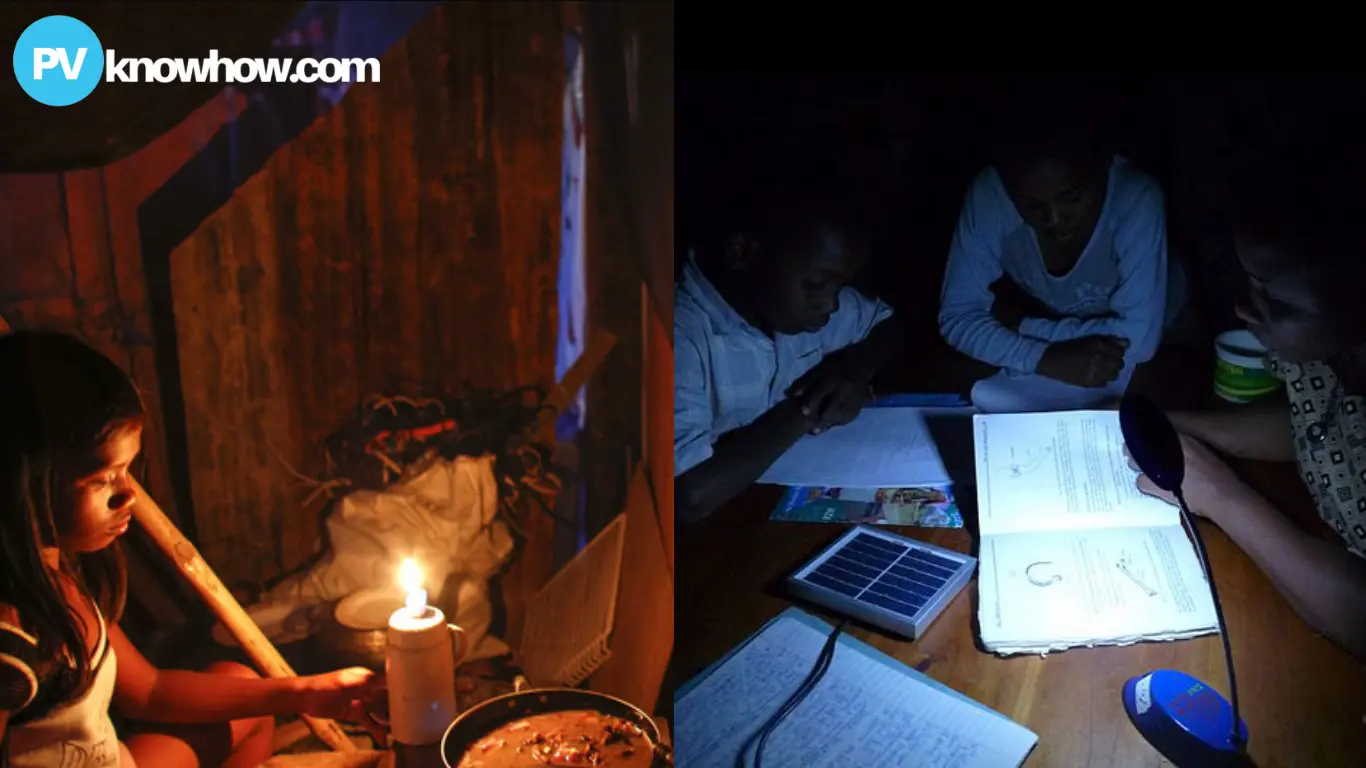The falling cost of solar power is bringing electricity within reach for low-income households. In communities far from the national grid, where affordability is also a major concern, off-grid solutions are essential for rapidly expanding access.
Bringing Solar-Powered Lighting to Malawi
In Malawi, only 23% of the population has access to electricity, leaving most villages in darkness after sunset. Households must rely on battery-powered torches, candles, and kerosene lamps for light, making daily activities and security a constant challenge. As a result, schoolchildren struggle to study in the dim light, if they can study at all.

Image: Collected
This situation is beginning to change for many households, thanks to solar-powered lighting provided by the private sector with support from the World Bank and other impact investors.
Rose John Soko from Shuga Village in Chiradzulu district, Southern Malawi, installed a solar-powered lighting system through the World Bank’s Malawi Electricity Access Project (MEAP). The project supports the Government of Malawi’s Off-Grid Market Development Fund—known as Ngwee Ngwee Ngwee—which makes solar-powered electricity affordable for low-income households.
Affordable Solar Products
The Ngwee Ngwee Ngwee Fund provides capital and grants to boost the off-grid solar market, partnering with five major solar companies to supply solar home systems to one million people. Soko’s package from Yellow Solar Company—one of the participating companies—includes four bulbs and a built-in FM radio, offering a significant improvement over candles and mobile phone lights.
Ungopanga Kanyemba, a sales agent for Yellow Solar, reports that since November 2023, over 50 households have benefited from the affordable Biolite package, and demand is increasing.
The reduced cost of solar electricity makes the package affordable and gives customers options. They can either pay upfront for the Biolite package at $58—about $10 less than the market price—or opt for monthly installments at a discounted rate.
Thanks to a new solar facility at his home, Junior Kalata from Sasu village no longer pays to charge his phone at the marketplace. Now, both he and his wife, Charity, can charge their phones at home, and he no longer needs to buy batteries for his torch.
Akimu Nasiyaya from Namputu village in Mulanje district shared a similar experience. He used to light his house with an old car battery that also powered his radio, requiring frequent recharging. With the new solar-powered lights, the car battery is now only needed for his radio. Nasiyaya installed his solar system with help from the Ngwee Ngwee Ngwee Fund and Zuwa Energy.
Malawi Electricity Access Project (MEAP)
The 2019 Malawi Energy Access Project (MEAP) is a $100 million initiative aiming to provide electricity to about 1.9 million people, roughly 9.5% of the population. Over the past year, 140,000 households—or 3.5% of the population—have gained access to electricity, increasing the national access rate from 19% to 23%.
MEAP aims to connect 180,000 on-grid households and 200,000 off-grid households by June 2025, raising the overall access rate to around 28%. The project is already showing remarkable progress: the on-grid connection rate hit a record high of 70,000 in the past year, significantly surpassing the previous annual maximum of 30,000 connections.
Michael Gondwe, a Senior Energy Specialist at the World Bank, highlighted the rapid growth in off-grid access driven by similar initiatives over the past seven years. He emphasized that off-grid solutions are essential for Malawi’s predominantly rural population, where electricity access was only about 4% at the start of MEAP. The project supports the government’s goal of achieving a 50% electricity access rate by 2030 as part of the Malawi 2063 Vision.
The impact of solar energy in addressing the Malawi power supply crisis cannot be overstated. The integration of off-grid solar solutions has brought affordable and reliable electricity to numerous low-income households, transforming daily life for many Malawians. Through initiatives like the Malawi Electricity Access Project (MEAP) and the Ngwee Ngwee Ngwee Fund—supported by the World Bank and private sector partners — communities that once relied on candles, kerosene lamps, and batteries now enjoy clean, renewable energy.



